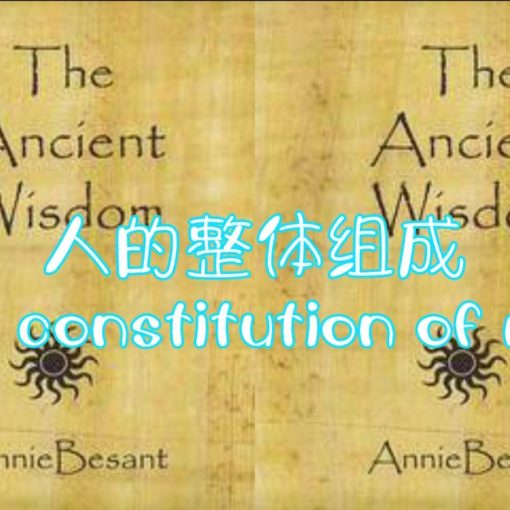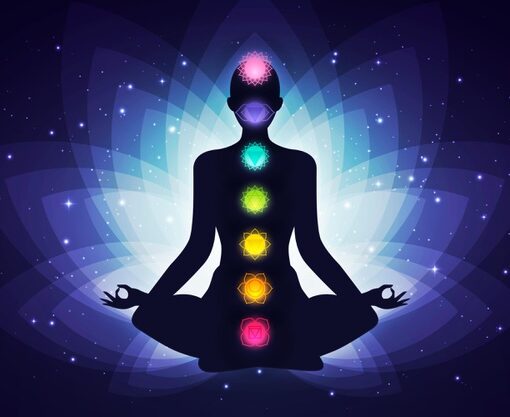
FEAR
恐惧
(1) (Fear) is the product of ignorance, and in its initial stages it is not the product of wrong thinking. It is basically instinctual, and is found dominating in the non-mental animal kingdom, as well as in the human kingdom. [Page 120] But in the human, its power is increased potently through the powers of the mind, and through memory of past pain and grievance, and through anticipation of those we foresee, the power of fear is enormously aggravated by the thoughtform we ourselves have built of our own individual fears and phobias. This thoughtform grows in power as we pay attention to it, for “energy follows thought”, till we become dominated by it. (4 – 238).
(1)恐惧是无知的产物,在其最初阶段,并不是错误思考的产物。它从根本上来说是一种本能,主宰着那些没有心智的动物,以及人类。但是在人类之中,它的力量通过心智的力量,通过对过去痛苦和悲伤的记忆,以及通过对我们预见事物的预期,恐惧的力量被由我们自己的害怕和恐惧所建立起来的思想形态得到极大加强。当我们把注意力放在上面时,这个思想形态的力量就会增强,因为“能量跟随着想法流动”,直至我们被它所支配。
(2) Every human being knows fear, and the range of the fear vibrations extends from the instinctual fears of the savage man, based on his ignorance of the laws and forces of nature, and of his terror of the dark and the unknown, to the fears prevalent today of loss of friends and loved ones, of health, of money, of popularity, and on to the final fears of the aspirant – the fear of failure, the fear which has its roots in doubt, the fear of ultimate negation or of annihilation, the fear of death (which he shares equally with all humanity) the fear of the great illusion of the astral plane, of the phantasmagoria of life itself, and also fear of loneliness on the Path, even to the very fear of Fear itself. This list could be largely extended but suffices to indicate the prevalence of fears of all kinds. They dominate most situations and darken many happy moments. They reduce man to a timid and frightened atom of sentient life, standing afraid before the stupendousness of the problems of existence, aware of his insufficiency as a man to cope with all the situations, and unable to leave his fears and questionings behind and step into his heritage of freedom and of life. Often he is so ridden by fear that he becomes afraid of his very reason. The picture cannot be too blackly coloured, for fear is the dominant astral energy at this time, and sensitive humanity succumbs all too easily to it. (4 – 297/8).
(2)每个人都知道恐惧,恐惧的振动范围从野蛮人基于对自然法则和力量的无知,以及对黑暗和未知事物的害怕,到今天普遍存在的对失去亲朋好友、健康、金钱和声望的恐惧,还有求道者的终极恐惧 —— 对失败的恐惧,这种是一种源自怀疑的恐惧,对最终否定或毁灭的恐惧,对死亡的恐惧(他与全人类都平等地拥有这种恐惧),对星光层巨大幻相的恐惧,对生命本身幻相变化无常的恐惧,以及对求道之路上孤独感的恐惧,甚至是对恐惧本身的恐惧。这个列表可以极大地拓展,但是足够表明各种恐惧存在的普遍性。它们主宰了大多数状况,并让很多快乐的时刻变得暗淡无光。它们让人沦为有觉知生命的胆怯、恐惧的原子,在存在的巨大问题面前感到恐惧,意识到作为一个人他不足以应对所有状况的恐惧,也无法抛开他的恐惧和质疑步入他自由和生命的传承。他常常被恐惧所笼罩,以至于他都害怕自己的理智。整体状况笼罩在黑暗之中,因为恐惧是当前占主导地位的星光层能量,敏感的人类太容易屈服于它。
(3) The Fear of Death is based upon:
(3)对死亡的恐惧基于:
a. A terror of the final rending processes in the act of death itself.
对死亡自身最终脱离过程的恐惧。
b. Horror of the unknown and the indefinable.
对未知和无法定义事物的恐惧。
c. Doubt as to final immortality.
对最终永生的怀疑。
d. Unhappiness at leaving loved ones behind or of being left behind.
当离开所爱之人或者被抛弃在后面的愁苦。
e. Ancient reactions to past violent deaths, lying deep in the subconsciousness.
深埋在潜意识中的对过去暴力死亡的古老回应。
f. Clinging to form life, because primarily identified with it in consciousness.
执着于生命的形态,因为在意识中主要认同于形态。
g. Old erroneous teaching as to Heaven and Hell, both equally unpleasant in prospect to certain types. (4 – 300).
对天堂和地域的古老错误教导,对某些类型的人类说,这两者都令人不快。
https://www.lucistrust.org/books/ponder_on_this/ponder_online/contents



